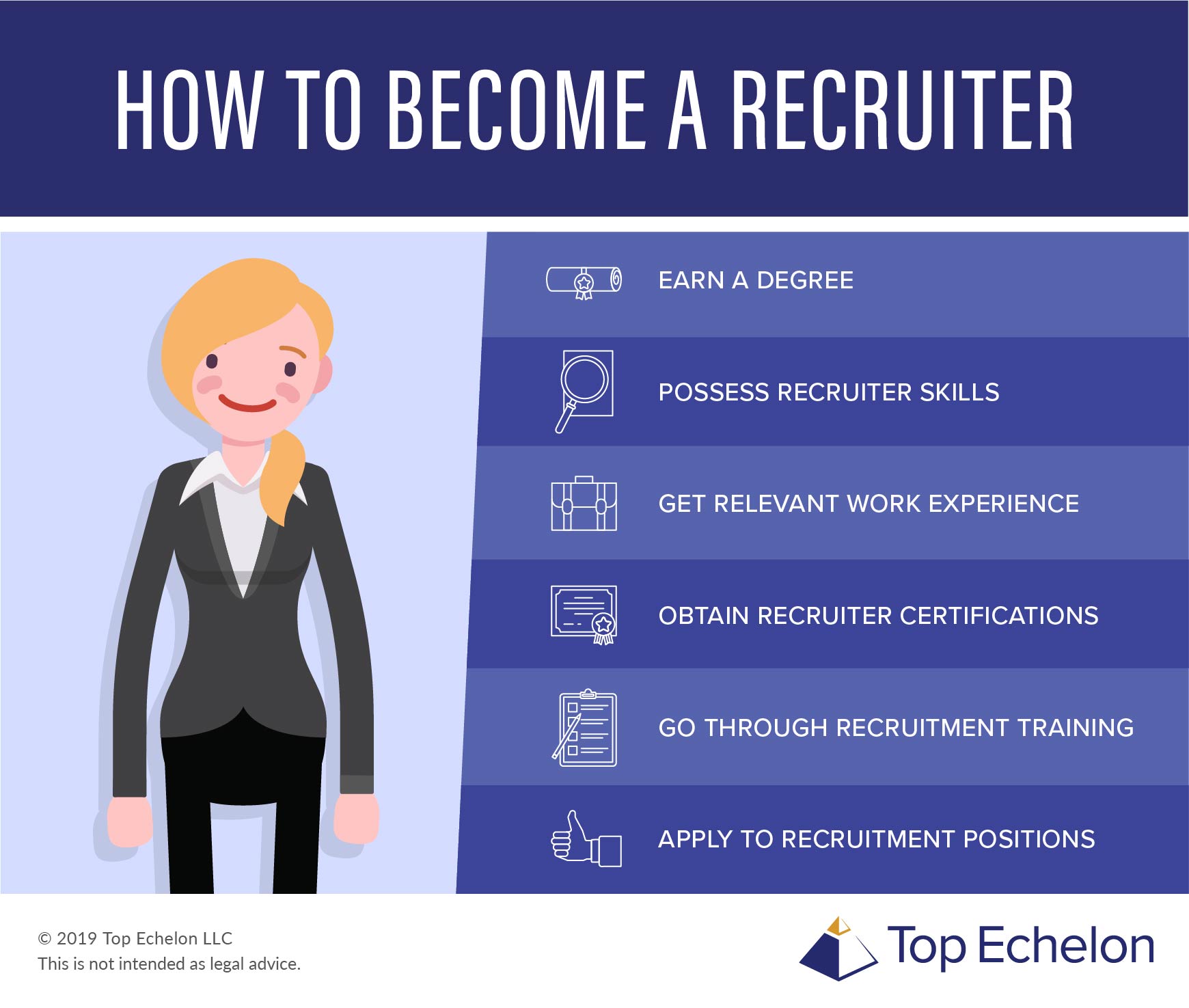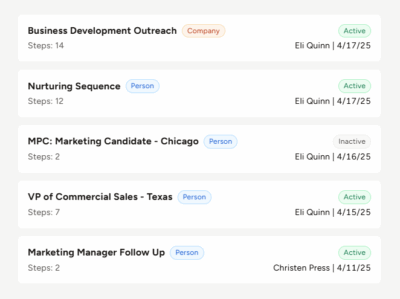If you’ve decided to pursue recruiting, you may not know where to begin. For starters, there is no degree in recruiting. To embark on this satisfying and rewarding career, you must learn how to become a recruiter.
Many recruiters come from all walks of life with varying educational backgrounds and job experiences. You may not follow the same how to be a recruiter steps as a fellow recruiter.
6 How to become a recruiter steps
You don’t necessarily have to go through all of the following steps to become a top recruiter. But, here are the basics on how to become a job recruiter.
Are you ready to get started?
1. Earn a degree
Earning an undergraduate degree is not mandatory. But, it could help catapult you into your recruiter career.
A bachelor’s degree could help you hone required soft skills, such as communication, problem-solving, and adaptability. So, what degree should you pursue?
According to one study, the most popular recruiter majors are:
- Psychology
- Business
- Marketing
- Human Resources
- Sociology
If you majored in another study, that’s OK. The above are common recruiter majors, but they aren’t the only ones you might go after.
2. Possess recruiter skills
Another critical part of becoming a recruiter is letting some of your recruiter skills shine through.
To become a great recruiter, you need sales, communication, time-management, and problem-solving skills.
If you want to sell your recruiting services to potential recruiting firms, clients, and candidates you need sales skills. Show people why they would want to work with you.
Communication skills are also a necessity for recruiter hopefuls. You need to work with two parties to make a successful placement. And, you need to negotiate to help close your clients’ job offers.
Learning how to become a recruiter requires time-management skills. When you’re juggling multiple job orders, you need to wisely delegate your time.
Issues are going to come up in an industry where you’re filling open positions with eager job seekers. Sometimes, you need to get innovative when it comes to problem solving.
3. Get relevant work experience
After getting your degree, you may not start off in a recruiter position. You might work in industries that sharpen your recruiting skills.
What kinds of jobs did other recruiters begin with? Here are the five most common ones reported:
- Sales
- Operations
- Administrative
- Support
- Research
4. Obtain certifications
There are a number of recruiter certification programs that can help further your recruitment career. Some certifications may also be substitutes for your bachelor’s degree.
Your potential employer may require that you have a certification. You can either obtain certifications in person or online.
Where do you find recruiter certification programs? Here are a few of the many programs you can choose from:
- AIRS recruiting certification
- Certified Personnel Consultant (CPC) certification
- LinkedIn Recruiter certification
- American Staffing Association certification
You might decide to work toward your certification after you’ve secured a recruitment position, too.
5. Go through recruitment training
Ongoing training is necessary in any industry. Through recruitment training, you can learn new sourcing methods, industry trends, and how to integrate critical technology (e.g., applicant tracking systems) into the hiring process.
You should also consider additional recruitment training throughout your career. Online training opportunities, like Top Echelon’s free recruiting webinars, can highlight key industry trends.
6. Apply to recruitment positions
The final step of knowing how to become a recruiter for a company is applying.
You likely need to go through the hiring process yourself, unless you opt for starting your own practice.
Familiarize yourself with interview questions for recruiters to prepare. Jot down things you like about each company’s hiring process to help you build your own recruitment strategy.
Use each hiring process you go through as an opportunity to develop and grow your own recruitment brand. Show off your recruitment skills, education, and experience when applying and interviewing.
Once you’ve become a recruiter, you need a reliable system to schedule interviews, move candidates through the pipeline, and more. Try Top Echelon’s recruiting software to simplify your responsibilities and stay organized. Get your free trial today!










